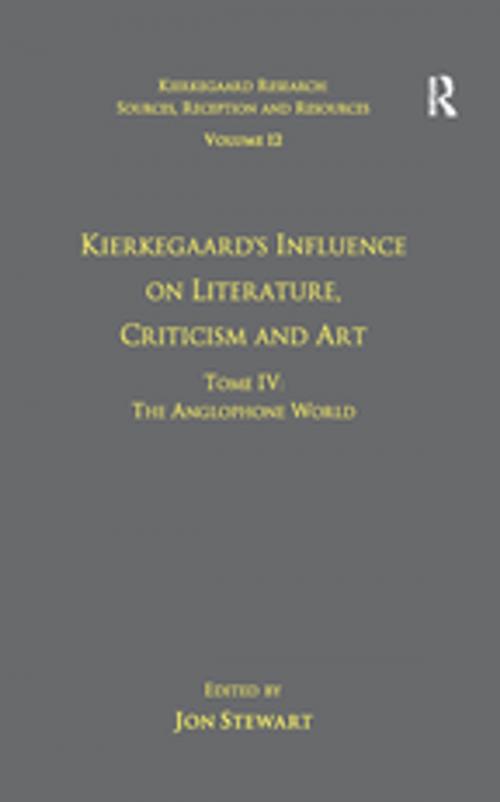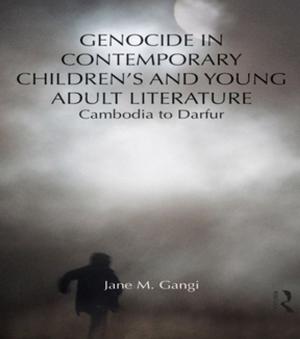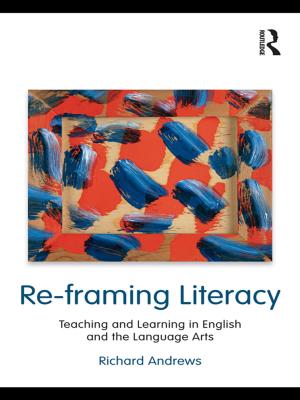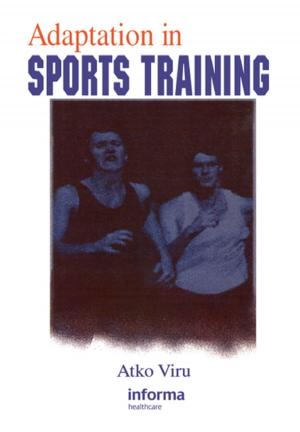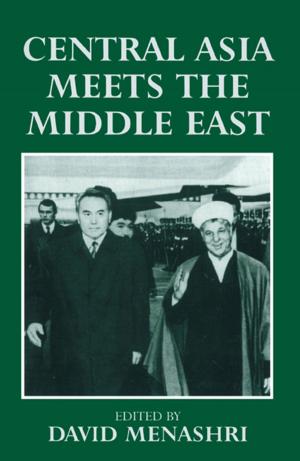Volume 12, Tome IV: Kierkegaard's Influence on Literature, Criticism and Art
The Anglophone World
Nonfiction, Religion & Spirituality, Philosophy| Author: | Jon Stewart | ISBN: | 9781351875172 |
| Publisher: | Taylor and Francis | Publication: | December 5, 2016 |
| Imprint: | Routledge | Language: | English |
| Author: | Jon Stewart |
| ISBN: | 9781351875172 |
| Publisher: | Taylor and Francis |
| Publication: | December 5, 2016 |
| Imprint: | Routledge |
| Language: | English |
While Kierkegaard is primarily known as a philosopher or religious thinker, his writings have also been used extensively by literary writers, critics and artists. This use can be traced in the work of major cultural figures not just in Denmark and Scandinavia but also in the wider world. They have been attracted to his creative mixing of genres, his complex use of pseudonyms, his rhetoric and literary style, and his rich images, parables, and allegories. The present volume documents this influence in the different language groups and traditions. Tome IV examines Kierkegaard’s surprisingly extensive influence in the Anglophone world of literature and art, particularly in the United States. His thought appears in the work of the novelists Walker Percy, James Baldwin, Flannery O’Connor, William Styron, Don Delillo, and Louise Erdrich. He has also been used by the famous American literary critics, George Steiner and Harold Bloom. The American composer Samuel Barber made use of Kierkegaard in his musical works. Kierkegaard has also exercised an influence on British and Irish letters. W.H. Auden sought in Kierkegaard ideas for his poetic works, and the contemporary English novelist David Lodge has written a novel Therapy, in which Kierkegaard plays an important role. Cryptic traces of Kierkegaard can also be found in the work of the famous Irish writer James Joyce.
While Kierkegaard is primarily known as a philosopher or religious thinker, his writings have also been used extensively by literary writers, critics and artists. This use can be traced in the work of major cultural figures not just in Denmark and Scandinavia but also in the wider world. They have been attracted to his creative mixing of genres, his complex use of pseudonyms, his rhetoric and literary style, and his rich images, parables, and allegories. The present volume documents this influence in the different language groups and traditions. Tome IV examines Kierkegaard’s surprisingly extensive influence in the Anglophone world of literature and art, particularly in the United States. His thought appears in the work of the novelists Walker Percy, James Baldwin, Flannery O’Connor, William Styron, Don Delillo, and Louise Erdrich. He has also been used by the famous American literary critics, George Steiner and Harold Bloom. The American composer Samuel Barber made use of Kierkegaard in his musical works. Kierkegaard has also exercised an influence on British and Irish letters. W.H. Auden sought in Kierkegaard ideas for his poetic works, and the contemporary English novelist David Lodge has written a novel Therapy, in which Kierkegaard plays an important role. Cryptic traces of Kierkegaard can also be found in the work of the famous Irish writer James Joyce.
